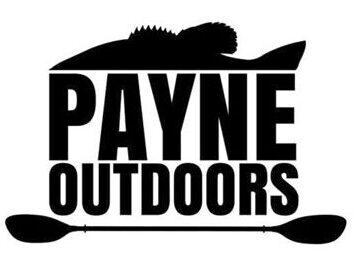 |
| Photo Courtesy of benswann.com |
It’s been all over the news. Phil Robertson from Duck Dynasty said some things that his employer, A&E, suspended him for. I have seen lots of takes from both sides that have seemingly polarized the country. The right, the left and in between have exhaustively argued over what he said. Some have even pointed to other parts of the interview that have been glanced over that touch on subjects like race. I don’t know Phil and I am not going to support or decry what he said. What I do want to talk about is another lesson that up and comers in kayak fishing (and other sports) can learn from this example.
All week people have questioned why Phil doesn’t have the right to say what he wants. In actuality he does but the First Amendment only protects him so far. When you are talking about individual liberties, Phil can talk about all of the things he wants with whomever he wants. When you are talking about an employee, whether exempt, non-exempt or contracted, of a company, most have had to agree to abide by a code of conduct and/or sign a contract. Employment can be ended based on a breach of said contract. In most cases, it is loosely termed as anything that could bring bad light upon the employing entity and left at that. Lots of wiggle room. They also generally have a clause that says doing so can lead up to and/or include termination. A&E is most likely acting on that. I am not saying it is right or wrong but what I am saying is that this is a company looking out for its image as it deems needed, to stay in the good graces of what it perceives is its viewing demographic.
That’s lots of contract and employment jargon so let’s use another example.
If Bob Jones works at WalMart as a cashier, would WalMart allow him to keep his job if they have a recorded conversation of him, while at work, using derogatory terms towards customers who dressed a certain way, in front of the actual customers dressed that way? Fill in your own stereotypes for that scenario.While you can say what you want as a representative of you, you cannot do so while acting as a representative of the company you work for and expect no recourse, especially when it becomes public. When agreeing to do Duck Dynasty, Phil stopped being just Phil. Celebrity demands a different set of rules for those who pay you. You are now representing that entire company. Why do you think all of those companies dropped Tiger Woods? He can sleep with whomever he pleases legally but with Woods as the face of those companies, some of them chose to disassociate with him. It may seem they are not the same but in actuality they are. An action or statement happened that made the companies nervous and/or displeased as to how it would affect their image.
Herein lies the lesson: If you are on a Pro Staff, work for an outdoor company, get promotional items, money or other benefits from being associated with a company, be careful what you say and do. Whether it is truth, fiction or somewhere in between, whether it is a one time thing that happened because you had a few too many at the bar or just an off the cuff comment where you ostracize a lifestyle, it can bite you.
What you say in your homes, amongst your family and friends is one thing but understand that if that becomes public or happens in public, you might risk losing relationships with companies if they feel differently than you or it causes their association with you to shine a bad light upon their name. And the bad light thing is purely a company decision.
As you seek to advance your numbers of commercial partners, understand it tightens the reins on what rights you choose to exercise, at least if you plan to stay employed with those companies.
Be purposeful with your speech. You never know who is listening.
